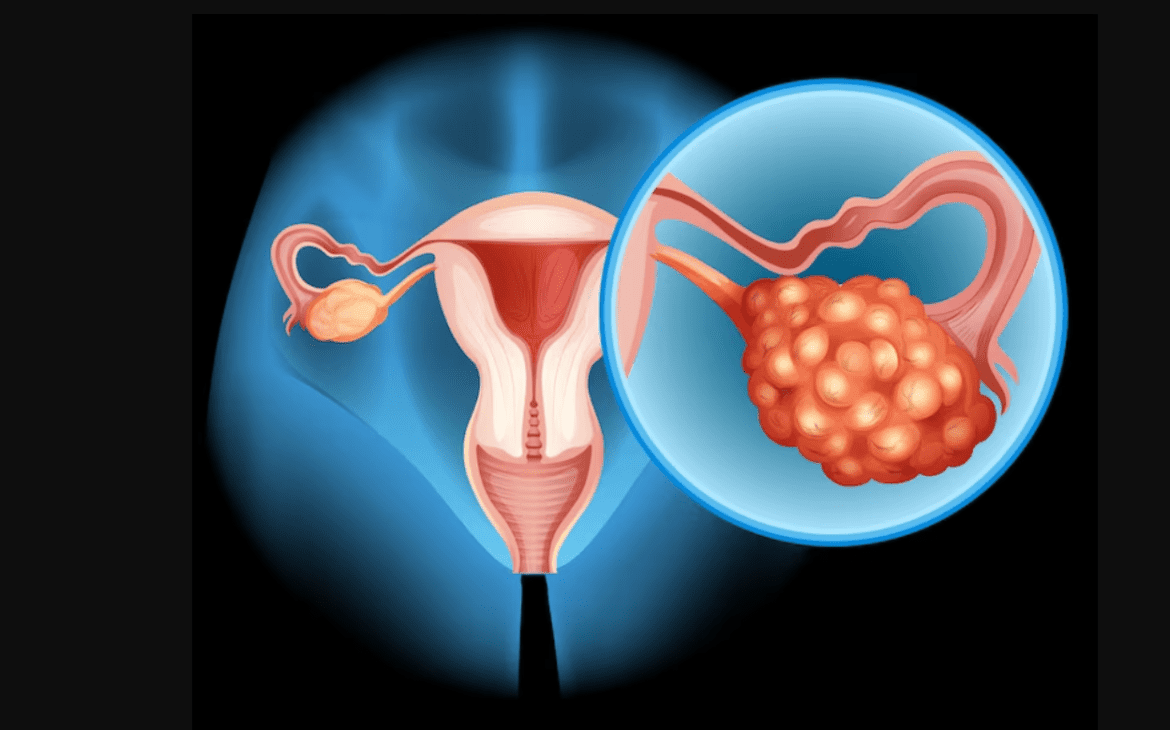PCOD Full Form: What Does PCOD Stand For?

PCOD Full Form: What You Should Know about this Common Health Condition
Are you familiar with PCOD? It stands for Polycystic Ovarian Disease, a common health issue that affects many women worldwide. PCOD is a hormonal disorder that causes various symptoms, including irregular periods, weight gain, acne, and even infertility. But what exactly is PCOD, and what should you know about it? In this article, we’ll explore the full form of PCOD and provide you with a comprehensive understanding of this condition. We’ll cover its causes, symptoms, diagnosis, and treatment options, offering everything you need to know to manage it effectively. Whether you’ve recently been diagnosed with PCOD, suspect you may have it, or simply want to learn more, keep reading to gain valuable insights into PCOD and how to handle it.
What is the Full Form of PCOD (also written as ‘P C O D’, or even ‘P.C.O.D.’)?
The full form of PCOD is “Polycystic Ovarian Disease”, a hormonal disorder that affects the reproductive system in women. It involves the growth of multiple small cysts on the ovaries, which can disrupt their normal function. PCOD is a complex condition that can significantly impact a woman’s overall health and well-being. Although the exact cause of PCOD is still unknown, researchers believe that a combination of genetic and environmental factors contributes to its development.
What does PCOD mean?
PCOD stands for “Polycystic Ovarian Disease,” which is a hormonal disorder affecting women’s reproductive system. It is characterized by the growth of multiple small cysts on the ovaries, which can disrupt normal ovarian function. PCOD is a complex condition that has a significant impact on a woman’s overall health and well-being. While the precise cause of PCOD remains unknown, researchers suggest that a combination of genetic and environmental factors play a role in its development.
Causes and Risk Factors of PCOD
The exact cause of PCOD is not fully understood yet. However, researchers believe that a combination of genetic and environmental factors contribute to its development. Some common risk factors associated with PCOD include:
- Hormonal Imbalances : PCOD involves imbalances in certain hormones like insulin, luteinizing hormone (LH), follicle-stimulating hormone (FSH), and androgens (e.g., testosterone). These imbalances disrupt the ovaries’ normal functioning.
- Insulin Resistance : Insulin resistance is a condition where the body’s cells become less responsive to insulin. It is often linked to PCOD and can contribute to hormonal imbalances and excessive androgen production.
- Hereditary Factors : PCOD appears to have a genetic component, as it often runs in families. If a woman has a close family member with PCOD, her risk of developing the condition may be higher.
- Inflammation : Chronic low-grade inflammation in the body may also contribute to PCOD development. Inflammation can affect hormone production and disrupt the ovaries’ normal function.
- Lifestyle Factors : Poor diet, lack of physical activity, and chronic stress can also contribute to the development and worsening of PCOD symptoms.
Symptoms of PCOD
PCOD can cause a variety of symptoms that can differ from woman to woman. Some common symptoms of PCOD include:
- Irregular Menstrual Cycles : Women with PCOD may experience irregular periods, including infrequent periods, prolonged periods, or complete absence of menstruation. Hormonal imbalances and disrupted ovulation contribute to this irregularity.
- Excessive Hair Growth (Hirsutism) : Excessive hair growth, known as hirsutism, is a common symptom of PCOD. Women may notice the growth of dark, coarse hair on areas like the face, chest, back, and abdomen. Elevated levels of androgens in the body contribute to this excessive hair growth.
- Acne and Oily Skin : PCOD can contribute to the development of acne and oily skin. Hormonal imbalances in PCOD stimulate sebum production, leading to clogged pores and acne formation, especially on the face, chest, and back.
- Weight Gain or Difficulty Losing Weight : Weight gain and difficulty losing weight are common challenges for women with PCOD. Hormonal imbalances disrupt the body’s metabolism and lead to weight gain, especially in the abdominal region. Insulin resistance associated with PCOD further complicates weight management.
- Mood Swings and Depression : PCOD can have a significant impact on emotional well-being. Hormonal imbalances and physical symptoms of PCOD can cause mood swings, irritability, and depression. Hormonal fluctuations affect neurotransmitters in the brain, influencing mood regulation.
- Fatigue and Low Energy Levels : Many women with PCOD experience fatigue and low energy levels. Hormonal imbalances and disrupted sleep patterns contribute to feelings of exhaustion and persistent fatigue. Maintaining consistent energy levels throughout the day can be a struggle.
- Infertility or Difficulty Conceiving : Infertility or difficulty conceiving is a major concern for women with PCOD. Hormonal imbalances disrupt regular ovulation, making it challenging to conceive naturally. PCOD is one of the leading causes of infertility in women.
- Sleep Disturbances : Sleep disturbances are commonly reported by women with PCOD. Hormonal imbalances, stress, and other factors related to PCOD disrupt sleep patterns, leading to insomnia, restless sleep, or excessive daytime sleepiness. Sleep disturbances worsen the fatigue experienced by women with PCOD.
It’s important to note that not all women with PCOD experience the same symptoms. The severity and combination of symptoms can vary. If you suspect you may have PCOD, it’s crucial to consult with a healthcare professional for a proper diagnosis.
Diagnosing PCOD
To diagnose PCOD, healthcare providers conduct a thorough evaluation of the patient’s medical history, perform a physical examination, and use specific tests. The following diagnostic methods are commonly employed:
- Medical history and physical examination : Healthcare providers inquire about the patient’s menstrual patterns, symptoms, and medical history. They also conduct a physical examination to check for signs of excess hair growth, acne, or abdominal tenderness.
- Blood tests : Hormonal blood tests measure hormone levels, including follicle-stimulating hormone (FSH), luteinizing hormone (LH), testosterone, and insulin. Elevated LH-to-FSH ratio and increased androgen levels indicate PCOD.
- Ultrasound : Transvaginal ultrasound is used to visualize the ovaries and detect the presence of cysts. Individuals with PCOD often exhibit enlarged ovaries with multiple small cysts.
- Differential diagnosis : PCOD shares symptoms with other conditions like hypothyroidism, adrenal hyperplasia, and Cushing’s syndrome. A differential diagnosis helps rule out other potential causes of the symptoms.
It is crucial to consult with a healthcare professional for a proper diagnosis. PCOD shares symptoms with other conditions, such as thyroid disorders and adrenal hyperplasia, so it is important to rule out other possible causes of your symptoms.
Treatment options for PCOD
While PCOD cannot be cured, several treatment options can effectively manage symptoms and improve overall health. The choice of treatment depends on individual symptoms, medical history, and goals. Common treatment options for PCOD include:
- Lifestyle changes : Making healthy lifestyle choices can significantly impact PCOD management. This includes maintaining a balanced diet, regular exercise, stress management, and adequate sleep.
- Medications : Healthcare providers may prescribe medications to regulate the menstrual cycle, manage hormonal imbalances, and reduce symptoms like acne and excessive hair growth. Common medications for PCOD include oral contraceptives, anti-androgen medications, and insulin-sensitizing drugs.
- Fertility treatments : For individuals experiencing infertility due to PCOD, fertility treatments like ovulation induction or in vitro fertilization (IVF) may be recommended. These treatments stimulate ovulation and enhance the chances of conceiving.
- Surgery : In certain cases, surgery may be advised to address specific PCOD symptoms. For instance, ovarian drilling, a surgical procedure, can restore ovulation in individuals unresponsive to other treatments.
- Alternative therapies : Complementary and alternative therapies such as acupuncture, herbal supplements, and yoga can be used alongside conventional treatments to manage PCOD symptoms.
Collaborating closely with healthcare providers to develop a personalized treatment plan tailored to individual needs and goals is crucial. Regular follow-up appointments and monitoring ensure the effectiveness of the chosen treatment approach.
Diet and Nutrition for PCOD
Eating right is important for managing PCOD symptoms and improving overall health. A balanced diet can regulate hormones, maintain a healthy weight, and enhance insulin sensitivity. Here are some dietary recommendations for individuals with PCOD:
- Include a variety of fruits, vegetables, whole grains, and lean proteins in your meals.
- Choose low-glycemic index foods to avoid sudden spikes in blood sugar levels.
- Get healthy fats from sources like avocados, nuts, and olive oil.
- Limit processed foods, sugary drinks, and foods high in saturated fats.
- Stay hydrated by drinking enough water throughout the day.
Exercise and Physical Activity for PCOD
Regular exercise has great benefits for individuals with PCOD. It improves insulin sensitivity, manages weight, reduces stress, and balances hormones. Here are some suggestions that can help improve your health and well-being:
- Cardiovascular Exercise : Engage in activities that raise your heart rate and boost cardiovascular fitness. Examples include brisk walking, jogging, cycling, swimming, dancing, or joining aerobic classes. Aim for at least 150 minutes of moderate-intensity aerobic exercise or 75 minutes of vigorous-intensity aerobic exercise per week.
- Strength Training : Incorporate exercises that focus on building muscle mass and improving overall body composition. Use resistance bands, free weights, or weight machines to perform exercises like squats, lunges, push-ups, bicep curls, and tricep dips. Aim for two to three days per week of strength training, targeting all major muscle groups.
- High-Intensity Interval Training (HIIT) : HIIT involves short bursts of intense exercise followed by periods of rest or lower-intensity exercise. This type of training can be beneficial for women with PCOD as it improves insulin sensitivity, promotes weight loss, and increases cardiovascular fitness. Include HIIT workouts such as circuit training or interval running two to three times per week.
- Flexibility and Stretching : Don’t forget to include flexibility exercises to improve joint mobility and prevent muscle imbalances. Stretch major muscle groups after each workout and consider activities like yoga or Pilates to improve flexibility, balance, and relaxation.
- Mind-Body Exercises : Stress reduction is crucial for women with PCOD, as stress can worsen symptoms. Consider incorporating mind-body exercises such as yoga, meditation, tai chi, or qigong into your routine. These exercises promote relaxation, improve mental well-being, and help manage stress levels.
- Yoga : Yoga is an excellent exercise option for women with PCOD. It is a mind-body practice that combines physical postures, breathing techniques, and meditation. Yoga offers several benefits for individuals with PCOD, including stress reduction, improved flexibility, hormonal balance, and enhanced overall well-being. Additionally, certain yoga postures can target specific areas of the body, such as the abdomen, pelvis, and lower back, which are commonly affected by PCOD. To learn more about yoga poses, please visit our blog.
Remember to start slowly and listen to your body. If you have been inactive or are new to exercise, begin with low-impact activities and gradually increase intensity and duration over time. Stay hydrated, wear suitable workout attire, and choose activities that you enjoy to make exercise a sustainable part of your lifestyle.
Mental Health and PCOD
PCOD can affect mental health due to physical symptoms, hormonal imbalances, and fertility challenges. Prioritizing mental well-being is crucial. Here are strategies for managing the psychological impact of PCOD:
- Communicate openly with healthcare providers and loved ones about your emotions and concerns.
- Seek professional counseling or therapy to address anxiety, depression, or body image issues.
- Practice stress-management techniques like mindfulness, meditation, or relaxation exercises.
- Join support groups or online communities to connect with others facing similar experiences.
Fertility and PCOD
PCOD can pose difficulties in achieving pregnancy due to irregular ovulation and hormonal imbalances. However, various fertility treatments can assist individuals with PCOD. Here are some options:
- Ovulation induction : Medications like clomiphene citrate or letrozole stimulate ovulation.
- In vitro fertilization (IVF) : This involves combining eggs and sperm in a laboratory and transferring resulting embryos to the uterus.
- Assisted reproductive technologies (ART) : Techniques such as intrauterine insemination (IUI) or intracytoplasmic sperm injection (ICSI) may be recommended based on individual circumstances.
PCOD in Adolescents and Teenagers
PCOD can affect adolescents and teenagers, requiring early detection and management to prevent long-term complications. Here are approaches for managing PCOD in this age group:
- Educate adolescents and parents about PCOD signs and symptoms.
- Encourage regular physical activity and a healthy diet to maintain a healthy weight.
- Provide emotional support and address concerns related to body image or self-esteem.
- Collaborate with healthcare providers, gynecologists, and endocrinologists for comprehensive care.
PCOD and Pregnancy
PCOD can be challenging during pregnancy and requires extra care and monitoring. It increases the risk of gestational diabetes, high blood pressure, and premature birth. Taking proper steps is crucial for a healthy pregnancy. Here are some helpful strategies:
- Get regular prenatal care from healthcare providers experienced in managing high-risk pregnancies.
- Monitor blood sugar levels and manage insulin resistance.
- Maintain a healthy lifestyle, including a balanced diet and regular exercise.
- Monitor blood pressure and manage any hypertension symptoms.
- Consult with a healthcare provider regarding necessary adjustments to medications.
PCOD and Long-Term Health Implications
PCOD has implications beyond reproductive health and can impact long-term health. Individuals with PCOD have an increased risk of developing metabolic disorders, cardiovascular issues, certain types of cancer, and mental health conditions. Understanding these implications is vital for proactive management and prevention. Consider the following:
- Increased risk of metabolic disorders : PCOD is linked to a higher risk of type 2 diabetes, insulin resistance, and metabolic syndrome.
- Cardiovascular health : PCOD is associated with an increased risk of high blood pressure, dyslipidemia, and heart disease. Adopting a heart-healthy lifestyle is crucial.
- Cancer risk : There may be a slightly higher risk of endometrial and ovarian cancer in individuals with PCOD. Regular screenings and monitoring are essential.
- Mental health : PCOD can impact mental well-being, contributing to anxiety, depression, and body image concerns. Prioritizing mental health support is vital.
Tips for Managing PCOD
Managing PCOD requires a holistic approach involving lifestyle modifications, medical interventions, and emotional support. Here are some tips to help effectively manage PCOD symptoms:
- Follow a balanced diet rich in whole foods, lean proteins, fruits, and vegetables.
- Engage in regular physical activity, including both cardiovascular exercises and strength training.
- Maintain a healthy weight and manage insulin resistance through lifestyle changes and prescribed medications.
- Prioritize self-care practices such as stress management, quality sleep, and relaxation techniques.
- Seek support from healthcare providers, support groups, and online communities to share experiences and gather information.
- Stay informed about the latest research and treatment options for PCOD.
PCOD Myths and Facts
There are several myths and misconceptions about PCOD. It’s important to separate fact from fiction to gain a better understanding of this complex condition. Here are common myths and corresponding facts about PCOD:
| Myths | Facts |
|---|---|
| PCOD is a rare condition. | PCOD is a common hormonal disorder. It affects approximately 5-10% of women of reproductive age, making it one of the most prevalent endocrine disorders in women. |
| Only overweight women get PCOD. | PCOD can affect women of all weights. While weight gain or difficulty losing weight is a common symptom of PCOD, women of any body size can develop the condition. Thin or normal-weight women can also have PCOD. |
| All women with PCOD will have visible ovarian cysts. | Not all women with PCOD will have visible cysts on ultrasound. The presence of cysts is just one diagnostic criterion, and a proper diagnosis considers various factors, including symptoms and hormone levels. |
| PCOD only affects the reproductive system. | PCOD is a systemic disorder that can impact multiple body systems, including reproductive, metabolic, and cardiovascular. Holistic management is important to prevent long-term complications. |
| Women with PCOD cannot get pregnant. | While PCOD can make conception more difficult, many women with PCOD can get pregnant with the right treatment and support. Fertility treatments can stimulate ovulation and increase the chances of conception. |
| PCOD is only about fertility issues. | PCOD has various symptoms and health implications. While fertility issues are a significant concern for women with PCOD, the condition also manifests through other symptoms such as irregular menstrual cycles, excessive hair growth, acne, weight gain, and mood disturbances. PCOD is a complex disorder that can affect multiple aspects of a woman's health. |
| PCOD can be cured with surgery. | PCOD is a chronic condition with no cure. While surgical interventions such as ovarian drilling may be recommended in certain cases, they do not provide a permanent cure for PCOD. Treatment for PCOD focuses on managing symptoms, regulating hormonal imbalances, and improving overall health. |
| Birth control pills are the only treatment option for PCOD. | Treatment for PCOD is multifaceted and individualized. While birth control pills may be prescribed to regulate menstrual cycles and manage symptoms, they are not the only treatment option. Lifestyle modifications, including diet and exercise, play a crucial role in managing PCOD. Additionally, other medications may be prescribed to address specific symptoms or hormonal imbalances. |
| PCOD is not a serious health concern. | PCOD can have long-term health implications if left untreated or poorly managed. It increases the risk of developing conditions such as type 2 diabetes, cardiovascular disease, endometrial cancer, and infertility. It is important to take PCOD seriously and seek appropriate medical care. |
Conclusion
PCOD, or Polycystic Ovarian Disease, is a complex hormonal disorder that requires a comprehensive approach to management. By understanding its symptoms, causes, diagnosis, and treatment options, individuals with PCOD can take proactive steps to improve their quality of life. Lifestyle changes, medications, and emotional support play vital roles in managing symptoms and preventing long-term complications. With the right support and knowledge, individuals with PCOD can lead fulfilling lives and navigate their reproductive health journey with confidence.
Frequently Asked Questions (FAQs)
Q: What does PCOD stand for?
A: PCOD stands for “Polycystic Ovarian Disease.”
Q: What is the PCOD full form in medical term?
A: The PCOD full form in medical terms is also “Polycystic Ovarian Disease”.
Q: Is PCOD a lifelong condition?
A: PCOD is a chronic condition, and there is no cure for it. However, with proper treatment and lifestyle modifications, women with PCOD can manage their symptoms and lead a healthy life.
Q: Can PCOD cause other health problems?
A: Yes, PCOD can increase the risk of developing other health problems such as type 2 diabetes, high blood pressure, and heart disease. It is essential to manage PCOD to prevent these long-term health issues.
Q: How common is PCOD?
A: PCOD is a common condition, affecting up to 10% of women of reproductive age. The prevalence of PCOD is increasing due to changes in lifestyle and diet.
Q: What causes PCOD?
A: PCOD is caused by a combination of factors, including hormonal imbalances and insulin resistance. These factors disrupt normal ovulation and lead to the development of cysts on the ovaries.
Q: Can PCOD be cured?
A: PCOD cannot be cured, but its symptoms can be managed effectively through lifestyle changes, medications, and other treatment options. With proper management, individuals with PCOD can lead healthy lives.
Q: How is PCOD diagnosed?
A: PCOD is diagnosed through a combination of medical history evaluation, physical examination, hormonal blood tests, and ultrasound imaging of the ovaries. A healthcare provider will assess symptoms and conduct necessary tests for an accurate diagnosis.
Q: What are the treatment options for PCOD?
A: Treatment options for PCOD include lifestyle changes, such as maintaining a balanced diet and regular exercise, medications to regulate hormones and manage symptoms, surgical interventions if necessary, and alternative therapies as complementary approaches.
Q: Can diet and exercise help manage PCOD?
A: Yes, a healthy diet and regular exercise play a significant role in managing PCOD symptoms. They can improve insulin sensitivity, regulate hormonal balance, aid in weight management, and enhance overall well-being.
Q: Is PCOD hereditary?
A: There is a genetic component to PCOD, but it does not guarantee that a family member will develop it. Having a close family member with PCOD may increase the risk, but other factors such as lifestyle and environmental factors also play a role.
Q: How does PCOD affect fertility?
A: PCOD can affect fertility by disrupting ovulation and hormonal balance. However, various fertility treatments and interventions are available to assist individuals with PCOD in achieving pregnancy.
Q: Can PCOD affect pregnancy?
A: Yes, PCOD can impact pregnancy. It increases the risk of certain complications such as gestational diabetes, high blood pressure, and premature birth. Proper management and prenatal care are essential for a healthy pregnancy.
Q: What are the long-term health implications of PCOD?
A: PCOD is associated with long-term health implications such as an increased risk of metabolic disorders, cardiovascular issues, certain types of cancer, and mental health conditions. Regular monitoring, lifestyle modifications, and preventive measures are important.
Q: How can I manage PCOD symptoms?
A: Managing PCOD symptoms involves a combination of lifestyle modifications, medical interventions, and emotional support. This includes maintaining a balanced diet, regular exercise, managing insulin resistance, and seeking support from healthcare professionals and support groups.






Comments
Trackbacks & Pingbacks
[…] (Polycystic Ovary Syndrome) and PCOD (Polycystic Ovary Disease) are common hormonal disorders affecting women of reproductive age. Symptoms of these conditions […]